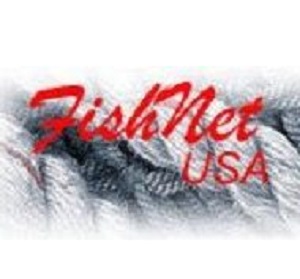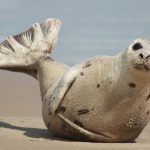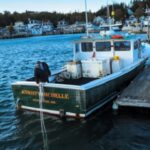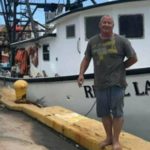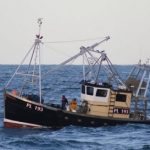Tag Archives: National Marine Fisheries Service
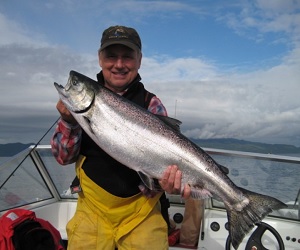
Destroying a fishery will not save Southern Resident Killer Whales – Scientists say feed starving whales farmed salmon
In less than two weeks, a Seattle-based federal judge will decide the fate of some 1,600 Southeast Alaska salmon trollers—fishermen who are already looking at the lowest allotment of Chinook in 20 years, largely due to the past three Pacific Salmon Treaty agreements that have cut, by two-thirds, their allocation of these high-value, sought-after fish. If you haven’t been following the trade press or Alaska media in the past few weeks, you may not know that this group of largely rural Alaska fishermen are today facing the unthinkable: being put out of business—collateral damage as the result of a lawsuit filed by a Washington state-based NGO, the Wild Fish Conservancy (WFC), against the National Marine Fisheries Service (NMFS). In the lawsuit, WFC seeks a Preliminary Injunction to stop the Southeast Alaska summer troll fishery, alleging that NMFS has failed to allow enough king (Chinook) salmon to return to Puget Sound to feed endangered Southern Resident Killer Whales,,, >click to read< 08:16
Feed starving whales farmed salmon, say scientists – “You could use well boats to deliver the farmed fish to where the whales feed.” >click to read<
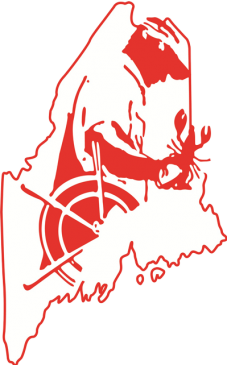
Court ruling threatens Maine’s lobster industry, MLA seeks donations to support its intervention in the case
Thousands of Maine’s family-owned lobstering businesses are at risk of extinction because of a recent federal court ruling citing a violation of the Endangered Species Act by the National Marine Fisheries Service. “The world’s most sustainable fishery could be shut down. And that is something that the Maine Lobstermen’s Association cannot let happen,” the association said in a press release today. “The MLA has launched a campaign to raise $500,000 to save Maine’s lobster industry,” Executive Director Patrice McCarron said in the release. The MLA is an intervenor in the court case and is the only organization in Maine that has been granted standing to participate in the case. >click to read< 15:20
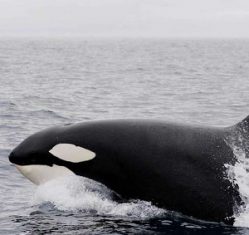
Trollers side with NMFS in Chinook litigation – Endangered whales compete with increasing populations of seals, sea lions
Litigation to halt the Southeast Alaska king salmon fishery to provide sustenance for Southern Resident Killer Whales is prompting commercial trollers to intervene in the lawsuit brought by the Washington state based Wild Fish Conservancy. The Alaska Trollers Association in Juneau voted on Tuesday, April 21, to insert itself into the defense of the lawsuit filed in mid-March against the National Marine Fisheries Service and the subsequent injunction against king salmon fishing and the troll fishery specifically. >click to read< 15:41
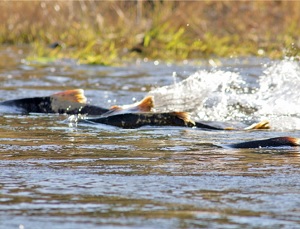
West Coast salmon season taking shape – Feds Look at Protections for Oregon Spring-Run Chinook Salmon
The Pacific Fishery Management Council has adopted ocean salmon season recommendations that provide recreational and commercial opportunities for most of the Pacific coast and achieve conservation goals for the numerous individual salmon stocks on the West Coast. >click to read< 17:25
Feds Look at Protections for Oregon Spring-Run Chinook Salmon -A petition seeking to extend federal wildlife protections to spring-run Chinook salmon found along Oregon’s coast has merit and could warrant listing the fish under the Endangered Species Act, Conservation groups Native Fish Society, the Center for Biological Diversity, and Umpqua Watersheds submitted a new petition in September 2019 specifically for spring-run salmon. >click you< 17:33
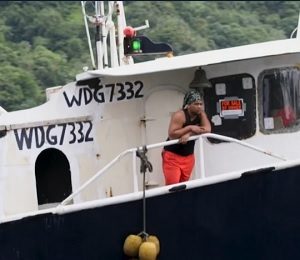
Video: A sea of obstacles imperil American Samoa’s tuna industry
Locally based fishermen who supply the lone Starkist tuna cannery in American Samoa are facing a perfect storm of obstacles that are threatening their economic survival. A battle is now on in the U.S. territory to fend off those looming challenges, from rising fuel costs to international competition.,, Carlos Sanchez is a veteran longliner, but he’s in the process of giving it up. “All my boats are for sale. I have seven boats, and they are for sale.” You have no hope for the industry? “We have no help for the industry!…” Video, >click to read< 08:43
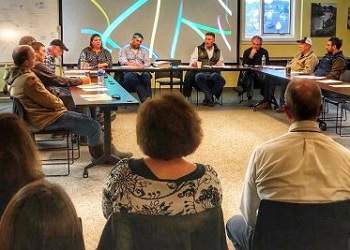
DMR Commissioner Patrick Keliher: NMFS didn’t give the state’s plan credit for all of its whale protections
The state Department of Marine Resources believes that its right whale plan, with its range of lobster fishing restrictions meant to avoid gear entanglements, clocks in right around the 60 percent risk reduction target sought by the National Marine Fisheries Service. Federal regulators – who determined that the state plan reduced risk by just 52 percent – failed to give Maine credit for all its proposed protection measures, as well as those enacted since the last federal right whale review in 2014, Marine Resources Commissioner Pat Keliher said Wednesday. >click to read< 07:15
Maine Lobstermen Dismayed By Fed’s Push For More Gear Changes To Protect Endangered Whale – >click to read<
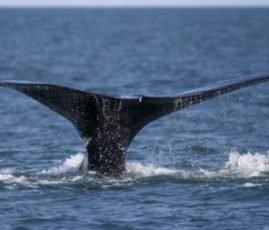
Federal regulations to protect right whales are delayed until at least this summer
Officials at the National Oceanic and Atmospheric Administration, which is responsible for protecting the critically endangered species, had planned to issue the regulations last year. But they were delayed after months of criticism from the region’s powerful lobster industry, which is worried that new requirements could be harsh and expensive. >click to read< 18:03
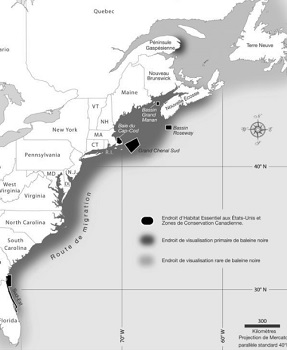
US elected officials discuss Canadian crab embargo
In a letter to Commerce Secretary Wilbur Ross, a member of President Donald Trump’s Cabinet, four elected officials from Maine stand up for their state’s lobster fishing industry. They argue that measures to protect the North Atlantic right whale imposed on American fishermen for several years have saved the species from extinction, but also increased its population. However, they add, the mortality of right whales “directly related” to commercial shipping and fishing activities in Canadian waters “continues to increase”. A total of 12 right whales died in the Gulf of St. Lawrence in 2017 and at least 9 in 2019, out of a population of around 400 individuals. >click to read<14:13
Des élus américains évoquent un embargo sur le crabe canadien – >click to read<
Most likely Carnival Cruise Lines is responsible for 18+ Right Whale deaths in the past 3 year, at which rate they would soon be extinct. – >click to read<
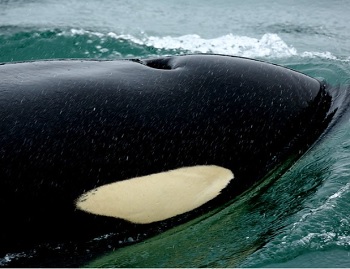
Suit targets Alaska salmon management to protect southern killer whales
The Wild Fish Conservancy filed notice on January 9, stating its intentions to sue the National Marine Fisheries Service for violating the Endangered Species Act, and jeopardizing the existence of Southern Resident Killer Whales. The Conservancy argues that an important food supply of the whales, endangered stocks of chinook salmon originating in Puget Sound, the lower Columbia River, the Willamette River, and Snake River is being depleted by the commercial troll and sport harvest in Southeast Alaska. >click to read< 20:51
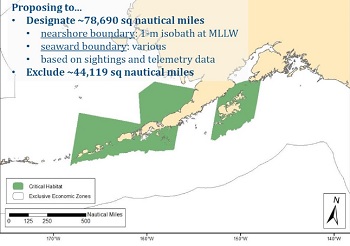
Southeast Alaska fishermen unite against designating critical habitat for humpback whales
Fishermen from different gear groups united against a proposed federal rule to designate Southeast Alaska as critical habitat for humpback whales. About 60 people crowded into the Petersburg borough assembly chambers and others overflowed into the hallway. Most were fishermen from Petersburg, Wrangell, and Ketchikan.,, They had the same message for the federal government. They don’t want Southeast labeled critical habitat for whales. >click to read< 13:00

Future of offshore fish farming in federal waters at issue in court
The potential environmental and economic consequences posed by proposals for fish farming in federal waters dictate that Congress — not a federal agency — must decide how to regulate the industry, an attorney told a federal appeals court Monday. At issue before the 5th U.S. Circuit Court of Appeals was a September 2018 ruling by a federal judge who threw out National Oceanic and Atmospheric Administration’s rules for fish farms in the Gulf of Mexico, saying Congress never gave the agency authority to make them. >click to read< 14:58
Meet Chris Schillaci who Joins Greater Atlantic Region’s Aquaculture Program! – In December, Chris Schillaci joined the Greater Atlantic Region’s aquaculture program, bringing ten years of experience to his new role. We asked Chris a few questions as he was settling in. >Click to read<
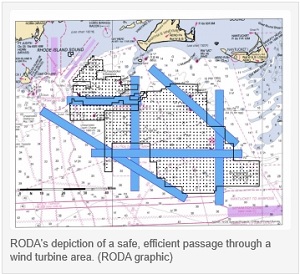
RODA Calls for 4 Nautical Mile Transit Lanes in New England Offshore Wind Areas
Today, RODA submitted a proposal to the U.S. Coast Guard, the Bureau of Ocean Energy Management, and the National Marine Fisheries Service calling for the designation of 4 nm transit lanes through the New England wind energy lease areas. 4 nm transit lanes would preserve safe and efficient passage along the routes most often used by fishermen. >click to read< 08:30
Fishermen call for 4-nautical-mile lanes between offshore wind turbines – >click to read<
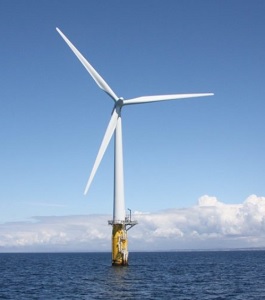
Vineyard Wind: delayed project reveals bluster in US’s offshore wind ambitions
The recent decision by the Interior Department to hit the pause button on plans to build the first major US offshore windfarm off the Massachusetts coast means the project now hangs in the balance. Amid federal agency infighting, does the country risk squandering a vital resource of clean energy? We investigate. The waiting game: could Vineyard Wind be the new Cape Wind? >click to read< 16:09
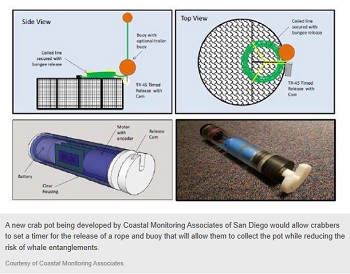
Ropeless Fishing Gear: New Crab Pot Could Help Reduce Whale Entanglements
Last year 46 whale entanglements were reported off the West Coast, and crab gear was responsible for about a third of them. According to Derek Orner, a bycatch reduction program coordinator with the National Marine Fisheries Service, this a growing problem,,, His agency recently announced grants for several ropeless fishing gear projects, including a new kind of crab pot developed by Coastal Monitoring Associates of California. >click to read< 09:43
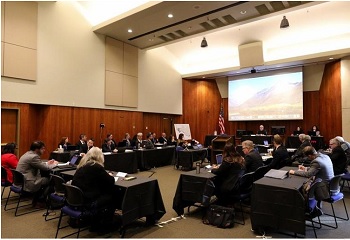
NOAA Argues to Allow Makah Tribe to Hunt Gray Whales off Washington Again
More than two decades ago, Makah tribal members killed a 30-foot gray whale in the waters off the Olympic Peninsula amid bitter protests from animal-welfare activists. The tribal hunt in May 1999 touched off a protracted legal battle that on Thursday took center stage inside a Seattle federal building. The proceedings over the tribe’s treaty right to hunt gray whales are expected to last more than a week in the courtroom-like setting. >click to read< 23:12

Lobstermen’s Association rejects DMR whale proposal
Efforts to find consensus over how to protect endangered North Atlantic right whales from entanglement in fishing gear without decimating the Maine lobster industry took a blow last week. The Maine Lobstermen’s Association (MLA) announced that it would not support a plan developed by the Department of Marine Resources “because it seeks reductions that exceed the documented risk posed by the Maine lobster fishery” and “creates unresolved safety and operational challenges for some sectors of the lobster industry,”,,, >click to read< 10:43
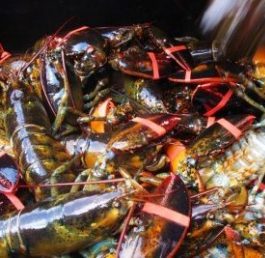
Lobster industry split over whale protection plan called Maine’s ‘line in the sand’
Some fishermen at the South Portland meeting cheered the plan. One gave Keliher a standing ovation, saying the new proposal was much better for the lobster fleet than the task force plan rolled out in August that called for 50 percent fewer buoy lines. But fishermen in Ellsworth and Waldoboro, the site of the first two meetings this week, urged Keliher to resist federal pressure to make concessions that would hurt lobster fishermen when they pose no real threat to the whale.,, “Grow a backbone,” one lobstermen told Keliher. “Don’t give them anything now.” >click to read< 07:47
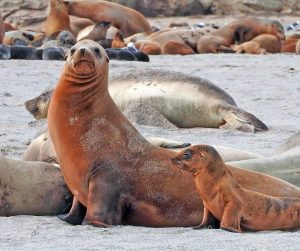
Cull! Plan Mulls Killing More Sea Lions to Save Salmon
Decades of efforts, including billions of dollars spent, to prevent the extinction of 13 species of Columbia River salmon and steelhead were stymied by the resurgence of gregarious mammals who themselves returned from the brink. Now, a new plan backed by Native American tribes and three states would attempt to protect the fish by killing more sea lions. >click to read< 08:54
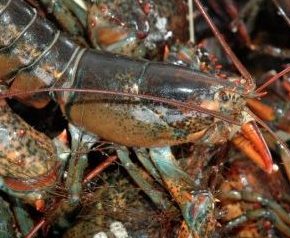
DMR’s answer to whale rules focus offshore
Last week, DMR Commissioner Patrick Keliher announced that after “rigorous scientific analysis,” the department had come up with a new draft plan to address “both the risk to right whales and concerns of fishermen” that is “in keeping with the real risk the Maine fishery presents.” Last March, the National Marine Fisheries Service announced that the risk of injuries to right whales in the Gulf of Maine had to be reduced by at least 60 percent. Last March, the National Marine Fisheries Service announced that the risk of injuries to right whales in the Gulf of Maine had to be reduced by at least 60 percent.,,, The rule also would extend electronic vessel monitoring now required on boats that hold permits to fish for species other than lobster in federal waters to all federally permitted lobster boats. >click to read< 11:27

Efforts underway to streamline fisheries disaster relief
With an increasing number of fisheries disaster requests coming from all over the United States, members of Congress and the federal government are looking for ways to improve the relief process.,, Summer 2018 brought disappointing results for many fishermen across Alaska,,, The slow process isn’t unique to Alaska. ways to improve the relief process, introduced Senate Bill 2346 by Sen. Roger Wicker, R-Miss., in July, seeks to speed up that process, in part by expediting relief funds being disbursed to fishermen. It also seeks to add avenues for relief for non-commercial fishermen, including charter operators. >click to read< 15:00

Final stretch for herring protections
“After 10 years of debate, the New England Fishery Management Council has finally accepted the proposals favored by Cape communities and what would keep midwater trawls off our coast year round. It will have benefits for all our commercial and recreational fisheries and the nearshore ecosystem,” said John Pappalardo, chief executive officer of the Chatham-based Cape Cod Commercial Fishermen’s Alliance, which has worked to advance the rules. “This is it,” said Pappalardo. “We need people to speak out for herring one more time to make sure these important rules become a reality.” >click to read< 19:55
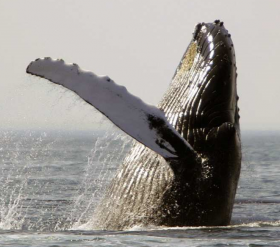
Feds Tap 300,000 Square Miles of Pacific for Humpback Whales
The proposed rule is the result of a settlement with the National Marine Fisheries Service, who were sued last year for not following through on a 2016 plan to designate two groups of Pacific Ocean humpback whales as endangered and a third group as threatened. The Center for Biological Diversity, joined by Turtle Island Restoration Network and the Wishtoyo Foundation, filed a federal lawsuit in the Northern District of California claiming the lack of action by the Trump administration violated the Endangered Species Act. >click to read< 16:25
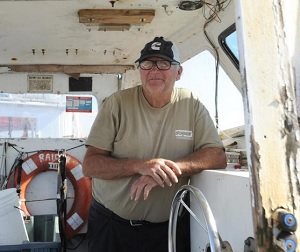
Truro lobsterman says rules to protect right whales costly to his business
Cheryl Souza is ending her lobster sales after October. But third-generation lobsterman Billy Souza, as it turns out, is considering quitting as well. “It’s all the whale issues,” Souza said. Unlike the lobstering in the days of Souza’s grandfather, Frank Souza, and his father, William Souza, the current generation fishing off Cape Cod is under an intense and unique scrutiny..,, “The whales could get entangled anywhere in the world, but there’s so many eyes on them here it looks like we’re the bad guys and we’re not.” >click to read< 07:38
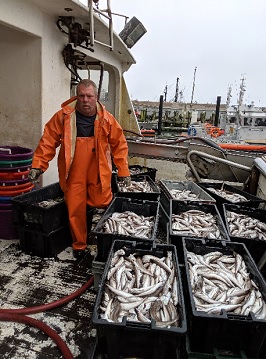
Nation’s first mega-offshore wind project stalled for additional study
On most afternoons in Point Judith, Rhode Island, commercial fisherman Brian Loftus steers his trawler back into port after a 12-hour day. Loftus unloaded some 1,500 pounds of whiting, scup, skate and squid. Estimated revenue: $3,000. Loftus has fished for three decades here, but to him there’s a looming problem: Offshore wind developers plan to plop turbines more than 70 stories high into his fishing grounds. >click to read< 08:46
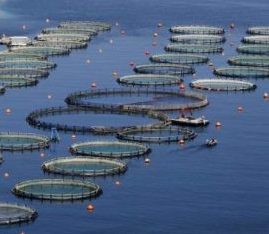
Plan for fish farm off Florida’s Gulf Coast raises environmental concerns
A Hawaiian fish farming company wants to expand into the Gulf of Mexico near Sarasota, Fla., prompting opposition from some fishing associations and environmental groups.,,, Although it’s only proposed as a demonstration project, such a plan pits the company’s desire to increase the local seafood supply against commercial fishing interests and some environmental groups, which believe industrial fish farms do more harm than good in the long run.,, The U.S. Environmental Protection Agency has green-lighted the Florida project,,, Other groups that oppose Kampachi’s project include the Louisiana Shrimp Association, Friends of the Earth and the Recirculating Farms Coalition >click to read< 10:44
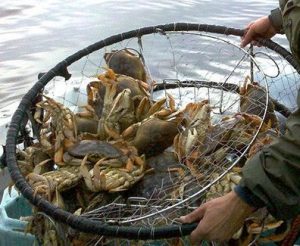
Fewer Whales Caught in Crabbing Gear After Settlement, but,,, there’s always that but,,,
The National Marine Fisheries Service reported 18 whale entanglements through Aug. 23, 2019, compared to 40 ensnared whales found during the same period last year. “We are really happy that the numbers are lower this year, but we think there still needs to be progress made on reducing the risk of entanglement,” said Catherine Kilduff, senior attorney with the Center for Biological Diversity. >click to read< 09:06
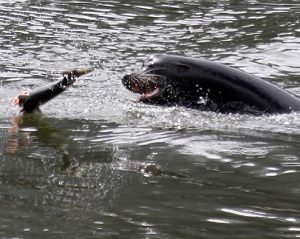
Proposal would kill more sea lions to protect fish
More than 1,100 sea lions could be killed annually along a stretch of the Columbia River on the Oregon-Washington border to boost faltering populations of salmon and steelhead, federal officials said Friday. The National Marine Fisheries Service said it’s taking public comments through Oct. 29 on the plan requested by Idaho, Oregon, Washington, and Native American tribes. The agency says billions of dollars on habitat restoration, fish passage at dams and other efforts have been spent in the three states in the last several decades to save 13 species of Columbia Basin salmon and steelhead protected under the Endangered Species Act. >click to read< 13:43
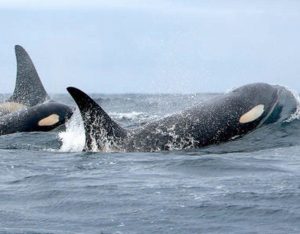
PCFFA Reacts to News of Jeopardy Finding for Salmon, Southern Resident Killer Whales
As reported today in the LA Times, the National Marine Fisheries Service determined in an important draft biological opinion [link to the document here] that the changes to California’s Central Valley Project (CVP) and State Water Project (SWP) operations championed by the Department of the Interior would result in jeopardy to spring and winter run Chinook salmon, steelhead trout, and southern resident killer whales (SRKW). The draft opinion was transmitted to the Department of the Interior, which immediately convened a team of outside lawyers and scientific staff from its own agencies to adulterate NMFS science and suppress the document’s findings. >click to read< 20:18







